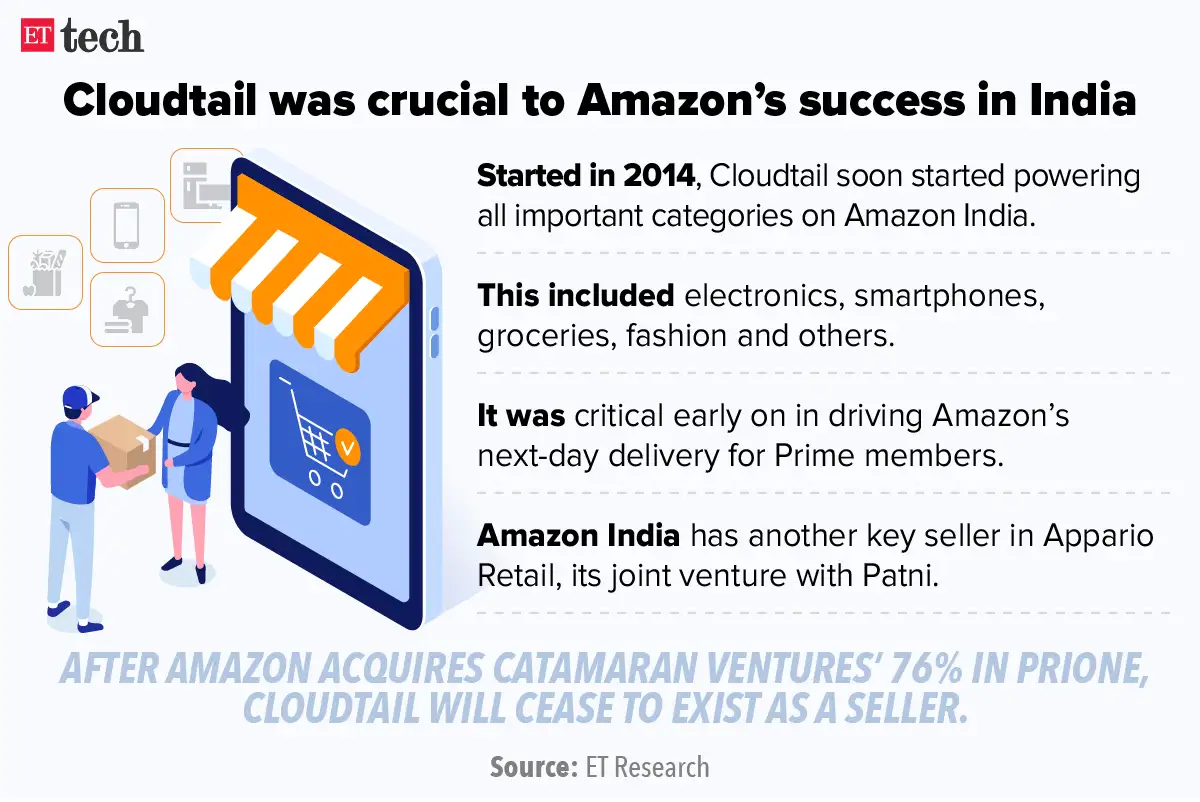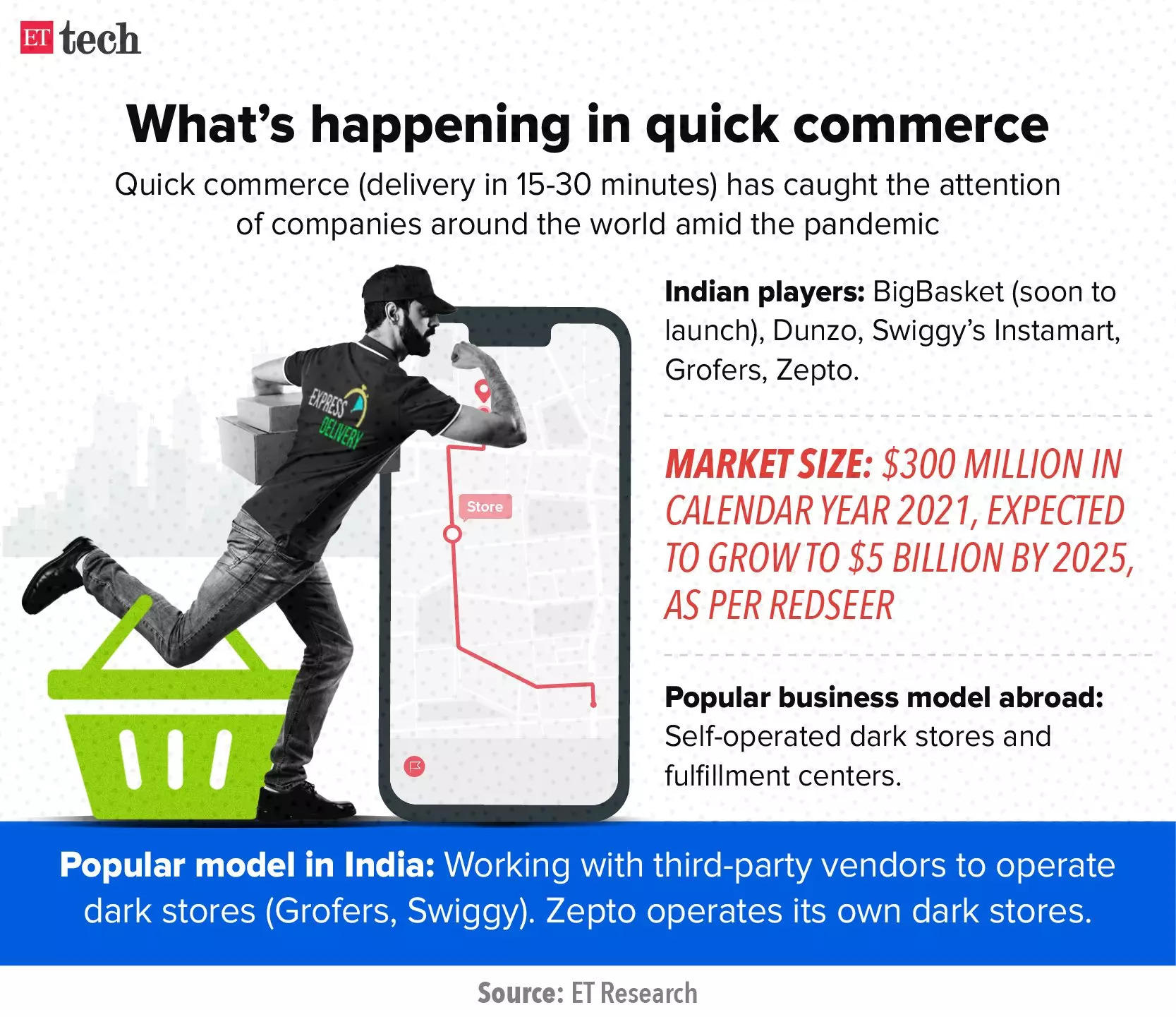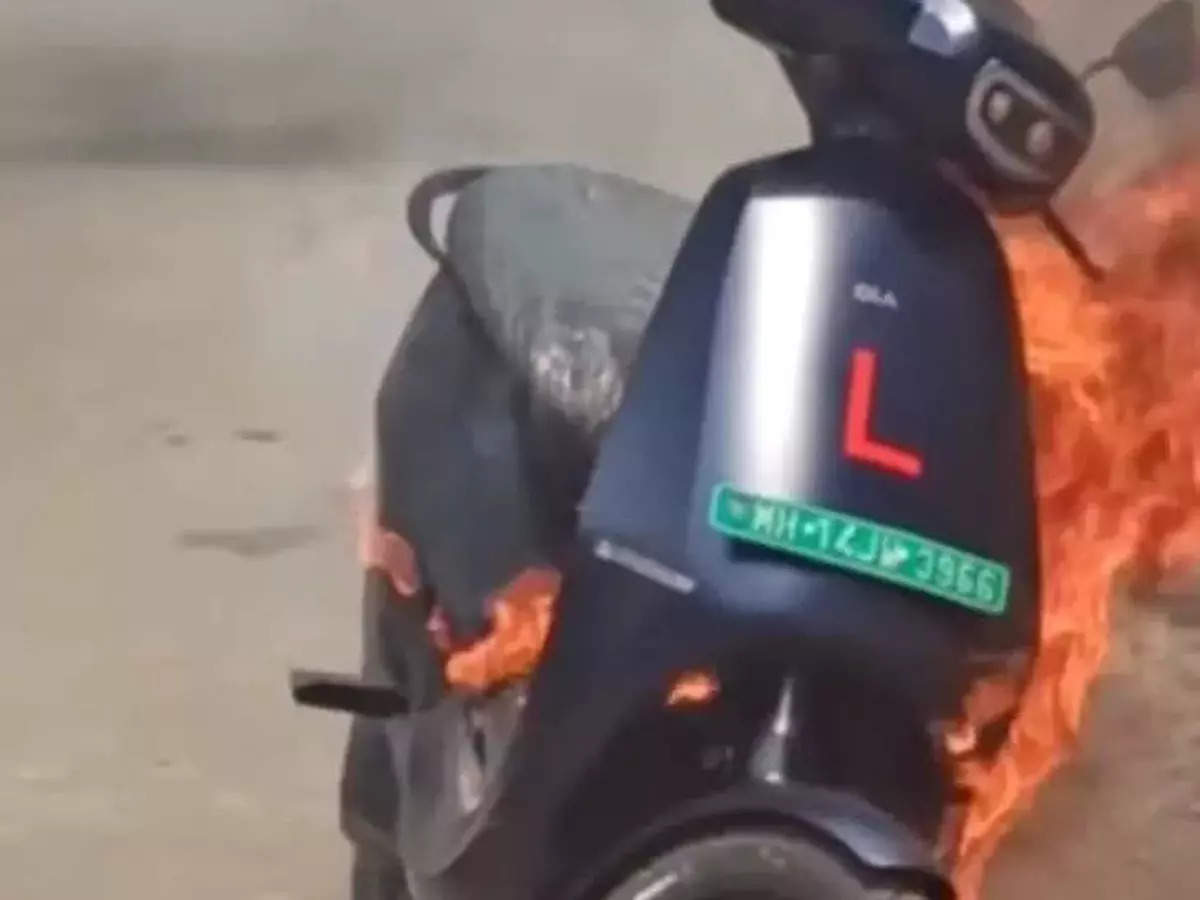Also in this letter:
■ Reliance aims to become India’s biggest quick egrocer
■ Lawmakers concerned about Zomato’s 10-min delivery plan
■ As EVs catch fire, makers look for ways to cool batteries
As closure looms, Cloudtail starts shipping business inventory to other sellers
Cloudtail, one of the largest sellers on Amazon India, has started transferring its inventory and business rights to other sellers ahead of its closure, multiple sources told us.
Details: Vendors who supply Cloudtail across categories like electronics, health and personal care, and smartphones are being sent new contracts for transfer of the business to new and existing sellers on Amazon India. The source said:
- Some of Cloudtail’s electronics business is being transferred to VRP Telematics, an existing seller on Amazon India that also works for the company’s private labels such as Solimo and AmazonBasics. It has interests across online distribution and retailing and worked closely with Xiaomi to set up its franchise, according to its website.
- Cloudtail’s health and personal care business is being moved to Rocket Kommerce, which sells OnePlus and other smartphone brands on Amazon India. It is also said to be increasing its play in health and personal care brands.
- We reported on March 25 that Cocoblu Retail was taking over the fashion and apparel business of Cloudtail.
People aware of the matter said Amazon does not plan to hold equity in these seller firms, or to set up another joint-venture unit with a similar structure as Cloudtail. India’s rules do not allow an entity running an online marketplace and its group companies to own equity in any seller on its platform or have control over their inventory.

The contract between Amazon and Catamaran Ventures for Cloudtail is valid until May 19 but Amazon is likely to shut Cloudtail sooner than that.

Crucial to Amazon’s success in India: Soon after it was founded in 2014, Cloudtail became one of the most influential sellers on Amazon India, moving the lion’s share of orders on the platform.
- In 2020-21, its revenue jumped by more than 45% to Rs 16,639 crore with a profit of more than Rs 182 crore.
- Cloudtail was clocking more than 50% of total sales on Amazon India at one point before the government tightened rules in 2016, stipulating that a single seller cannot account for more than 25% of total sales on an online marketplace.
- Consequently, Amazon India had to diversify its key seller base and work with more sellers.
Reliance aims to become India’s biggest quick egrocer

The war for quick grocery delivery is set to intensify with Reliance Retail’s JioMart ready to enter the space.
Driving the news: The company will start trials in Navi Mumbai in the next few days for ‘JioMart Express’, through which it will deliver around 2,000 different products in a few hours, two senior industry executives aware of the plans told us.
Also Read: Unpacking the Reliance-Dunzo deal; Livspace is turning unicorn
Reliance plans to offer quick grocery delivery in over 200 cities and towns where JioMart currently operates by the end of next quarter. It plans to double this number in the next few months and become India’s largest quick egrocer.
Tapping kiranas and Dunzo: The company will also tap its network of kirana stores for this, apart from its own chain of grocery stores, the executives said. It is testing a separate app for express grocery deliveries and integrating the service with JioMart as well.
JioMart Express will also use Dunzo in markets where it is strong, like the metros, an executive said. Earlier this year, Reliance had led a $240 million funding round in quick commerce firm Dunzo and has a 26% stake in it.

On quick grocery deliveries, Reliance will be competing against Tata-owned BigBasket, Zomato-funded Blinkit, Swiggy’s Instamart, Walmart’s Flipkart Quick, and Zepto.

While traditional ecommerce deliveries take a day or longer, quick commerce (or q-commerce) enables customers to get small quantities of goods to customers in a shorter period of time. According to a RedSeer report, the quick commerce sector in India is expected to grow to $5 billion by 2025 from the current $0.3 billion.
A new challenge: Quick commerce is not entirely new for Reliance Retail. It has been delivering orders in less than three hours placed through Reliance Digital online or app for smaller consumer electronics such as mobile phones and laptops. “However, order volumes are going to be much more frequent in grocery, so it will need a robust backend and delivery fleet,” an executive said.
Lawmakers concerned about Zomato’s 10-min delivery plan

Lawmakers in Tamil Nadu and Karnataka have expressed concerns about Zomato’s plan to roll out 10-minute food delivery.
Driving the news: On Friday, Chennai’s traffic administrators summoned Zomato executives, seeking clarifications about the infrastructure needed to operate quick delivery services safely, people aware of the discussions told us.
The sources said Zomato clarified that 10-minute delivery was a ‘pilot project’ for select cities, and that it would not be implemented in Chennai for now. In turn, traffic regulators sought an assurance that Zomato would inform them before implementing any quick delivery services in the city, they added.
In Karnataka, home minister Araga Jnanendra told us he would ask senior police officers to look into companies offering quick delivery services through apps. “Even the police department’s emergency response vehicles have not been able to make this kind of a commitment to citizens,” he said.
A representative for Zomato confirmed that the instant delivery pilot was presently restricted to Gurugram, adding “if needed, we look forward to working with local authorities when Zomato Instant launches in their respective locations.”
Zomato’s plan to offer 10-minute express food delivery has ruffled several restaurants and consumers who took to social media to raise questions over its quality and freshness, prompting the food aggregator’s founder and CEO Deepinder Goyal to tweet a series of clarifications.
Many restaurant executives told us they won’t be able to offer fresh food in 10 minutes even as Goyal clarified on Twitter that the initiative would only be for “popular and standardised items” in nearby locations.
TWEET OF THE DAY
As EVs catch fire, makers look for ways to cool batteries

Electric vehicle (EV) makers and their battery suppliers are exploring various technical solutions to eliminate overheating risks amid incidents of electric two-wheelers catching fire.
On Saturday, an electric scooter caught fire in Vellore, Tamil Nadu, killing a man and his daughter. Earlier, videos of an S1 Pro of Ola Electric catching fire in Pune went viral on social media on Saturday afternoon.
While Ola Electric is investigating the issue and is yet to find the root cause of the problem, other EV companies plan to work closely with component and battery manufacturers to get to the bottom of the issue.
What’s the solution? Battery makers said their design and chemistry need to be looked into. “An ideal situation would be to keep the battery cold always and at a low temperature,” said Anand Kabra, managing director of Battrixx, a battery pack supplier for electric two-wheelers. “However, India being a low-cost market in the two/three-wheeler segment, companies are not ready to invest in active cooling solutions,” he added.
Even in the absence of a cooling solution, industry experts said a high degree of safety redundancy could be built into battery design through fuses and other means to ensure increasing temperature in one cell does not cascade onto the rest of the battery.
Battery swapping could also help minimise risk of fire, experts said.
Startup founders band together to launch Bharat Founders Fund

Maanav Sagar and Sera Arora of Bharat Founders Fund
Founders and senior executives of several startups, including some unicorns, have come together to launch Bharat Founders Fund (BFF), which will invest in pre-seed-stage companies.
Who? The 65-odd founders include:
- Vidit Aatrey and Sanjeev Barnwal, cofounders of Meesho
- Gazal Kalra, cofounder of Rivigo
- Cars24 cofounders Vikram Chopra
- Mehul Agrawal and Gajendra Jangid; Smita Deorah and Sumeet Mehta of Lead School
- Vamsi Krishna, cofounder of Vedantu
- Saurabh Garg, cofounder of NoBroker
Fund details: The fund, which has already made 20 investments, will typically invest $100,000 to $200,000 on average in various early-stage startups, including those that are still at the idea stage.
BFF, which currently has a corpus of $20 million, will be a rolling fund and look to make 100 early-stage investments this year alone. It is being managed by Investopad partners Maanav Sagar and Sera Arora.
Its portfolio includes learning platform Yellow Class, jobs platform Skillbee, lending startup Basic, and direct-to-consumer brand BlissClub, among others.
Zoom explores new features as people get back to work

Zoom Video Communications is exploring new technologies to tap the hybrid working model that is set to take shape as the pandemic wanes and people get back to office, according to the company’s head for India & Saarc countries.
Video calls to collaboration: Sameer Raje said Zoom plans to go from a video-calling application to a collaboration platform.
The new features will make it more “cool”, accessible and relevant as the world gets back to working in offices in some form or the other, Raje said. “It could be avatars, it could be a virtual world, it could be virtual interaction, it could be IoT, or multiple other things,” he told us.
Last week, Zoom introduced avatars, which can replace a participant in a video call with a virtual animal that mirrors his or her head movements and facial expressions.
The company posted revenue of $4.099 billion, up 55%, last year. But, Zoom, which became a household name during the pandemic, has seen growth slow in the last few quarters. Its stock has slumped over 38% this year.
Other Top Stories By Our Reporters

Edtech platforms chart post-Covid route: The edtech sector saw an unprecedented boom in India during the pandemic as students attended online classes and digital modules. But what happens now, when offline classes resume? To ensure the continuity of their online classes, several edtech platforms have tied up with schools and other educational platforms.
The meta ambitions of Indian startups: Manish Maheshwari’s new venture Invact Metavarsity is betting that the 3D nature of the virtual world – or metaverse – would prove far more effective in making students learn. This is a bold new strategy by Twitter India’s former chief, who says the metaverse replicates a classroom setting better than video-conferencing.
Higher education, lifelong learning to drive edtech market growth, says Redseer: India’s online higher education and lifelong learning market within the edtech space is poised to reach $5 billion by 2025, supported by the easing of regulations governing degrees, according to management consulting and market research firm Redseer.
Global Picks We Are Reading
■ How self-driving cars got stuck in the slow lane (The Guardian)
■ Honey, I decapitated the MacBook (The Verge)
■ How sanctions on Russia, war in Ukraine and Covid in China are transforming global supply chains (WSJ)
Today’s ETtech Morning Dispatch was curated by Zaheer Merchant in Mumbai and Judy Franko in New Delhi. Graphics and illustrations by Rahul Awasthi.
























